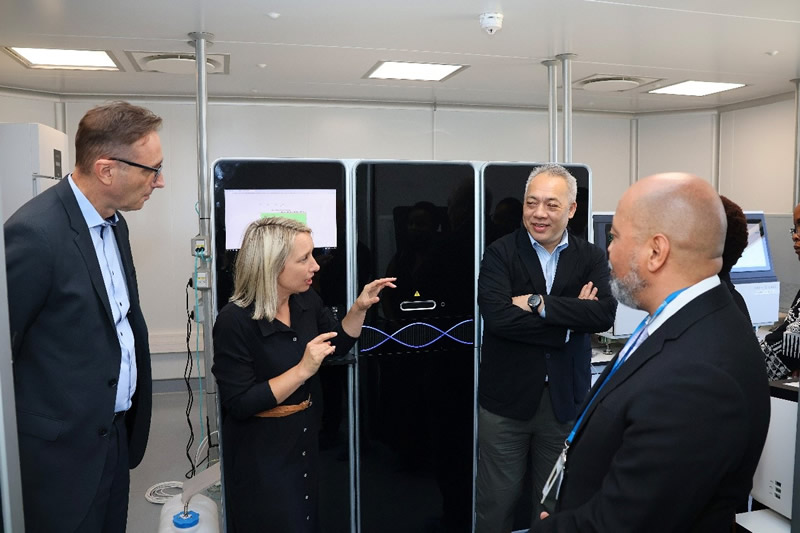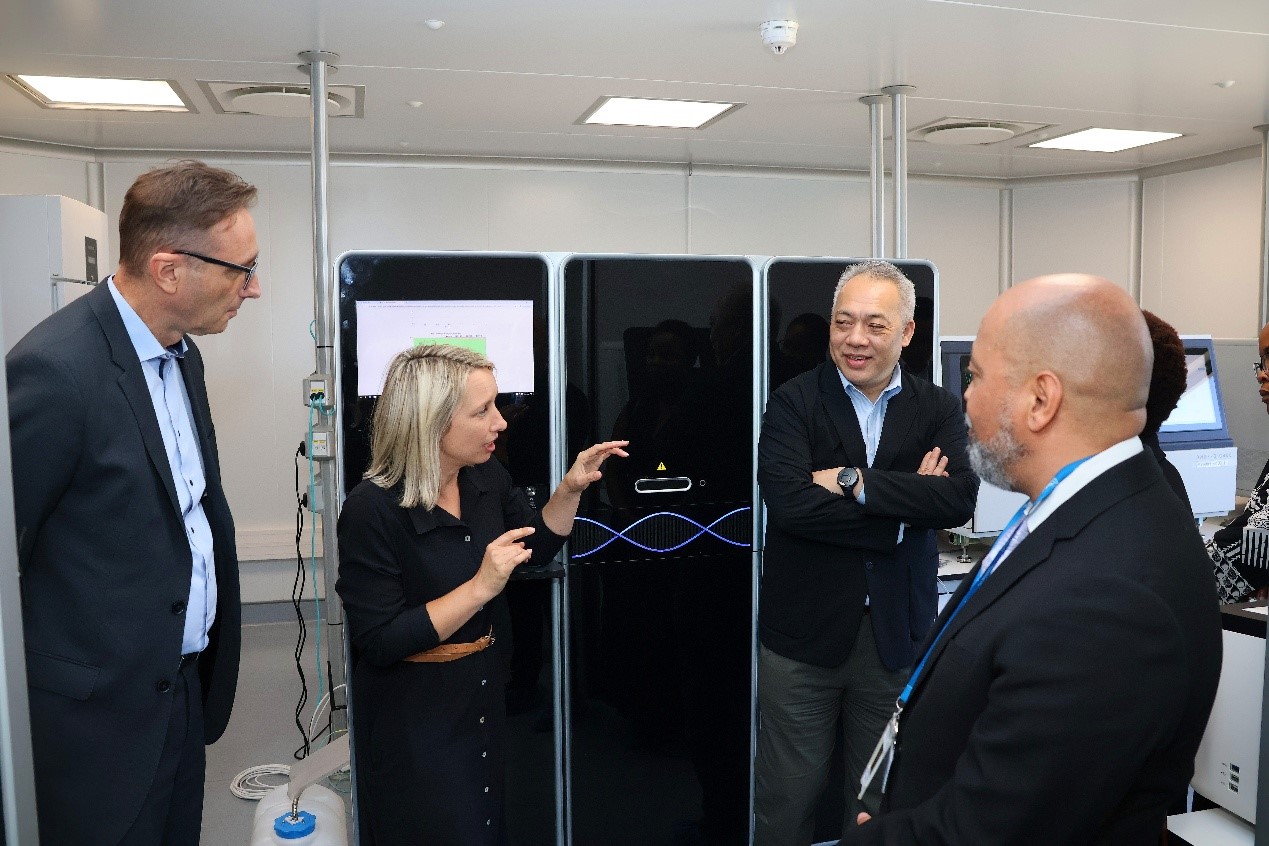SAMRC Unveils Continent’s First T7 Sequencer
The South African Medical Research Council (SAMRC) has launched Africa’s first DNBSEQ-T7 Sequencer, a powerful machine capable of sequence human and animal genomes faster and cheaper than ever before.

The T7 Sequencer, developed by global biotech company MGI, can process up to 64 human genomes in a single day, generating a massive seven terabases of data per run. In simple terms, it’s one of the world’s most advanced DNA sequencing systems and now it’s right here in South Africa.
The DNBSEQ-T7, now operational at the SAMRC Genomics Platform in Cape Town, ranks among Africa’s most advanced ultra-high-throughput sequencing platforms by delivering ultra-high throughput data with unmatched speed, scale, and accuracy. The system enables large-cohort and multi-omics studies, significantly reducing sequencing costs and expanding accessibility across the continent.
The new technology marks a major leap for the continent’s scientific independence. African researchers had to send samples overseas for high-throughput sequencing. With the T7, those studies can be done locally, giving scientists greater control over their data and cutting research costs and turnaround times.
Since its launch in 2019, the SAMRC Genomics Platform has steadily grown into one of the region’s leading sequencing facilities. The arrival of the T7 now allows researchers to tackle much larger and more complex projects from studying cancer, HIV and tuberculosis, to conserving Africa’s biodiversity and improving crop genetics.
With the installation of the DNBSEQ-T7, the SAMRC’s capabilities are further enhanced, enabling high-throughput, high-impact genomic projects at a scale previously unattainable in Africa. To date, the platform has sequenced 96 lion genomes, 168 low-coverage human genomes, and 9 high-coverage human genomes from patients with undiagnosed rare diseases.
The installation aligns with South Africa’s national goals in health innovation and precision medicine, helping to build the local expertise needed to tackle the country’s major disease burdens. It also strengthens the continent’s contribution to global genomics initiatives such as the South African 110,000 Human Genome Programme, which aims to create large-scale, representative datasets for African populations.
The acquisition of the T7 was made possible through a long-standing partnership between MGI and the SAMRC, with support from the Department of Science, Technology and Innovation (DSTI), DIPLOMICS, and the Platform’s loyal user base of local researchers and clinicians.
Beyond human health, the T7’s ultra-fast, high-volume sequencing capacity will support work in agriculture, traditional medicine, and environmental genomics, helping researchers unlock new insights into Africa’s rich natural heritage.
Looking ahead, the SAMRC plans to introduce other cutting-edge techniques such as single-cell RNA sequencing and spatial transcriptomics at scale for the first time in Africa.
For more information, please contact:
Ms Yolanda Phakela
SAMRC Public Relations Manager
021 938 0339
Yolanda.phakela@mrc.ac.za

